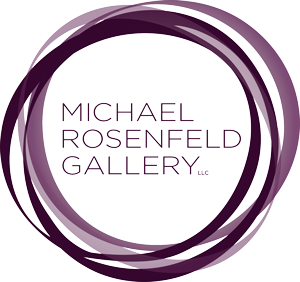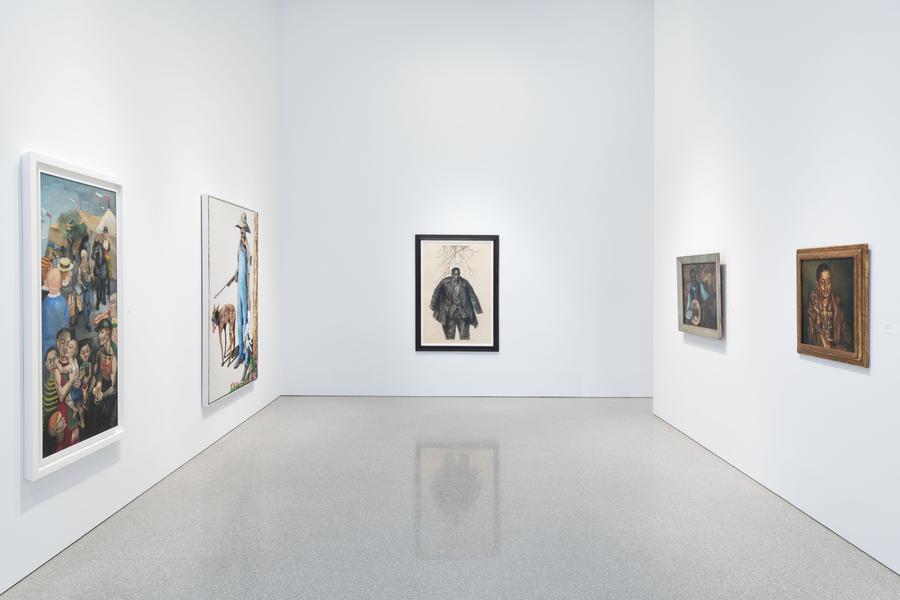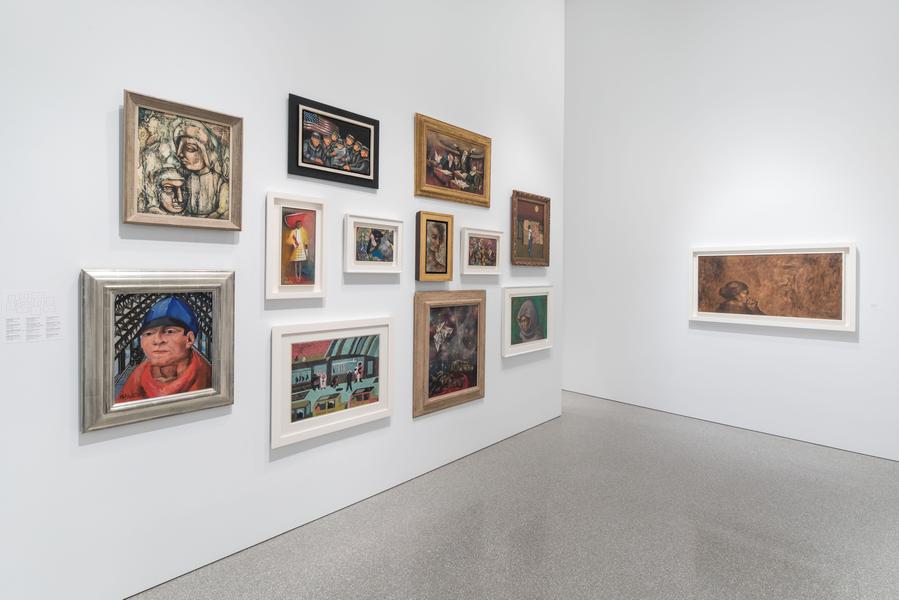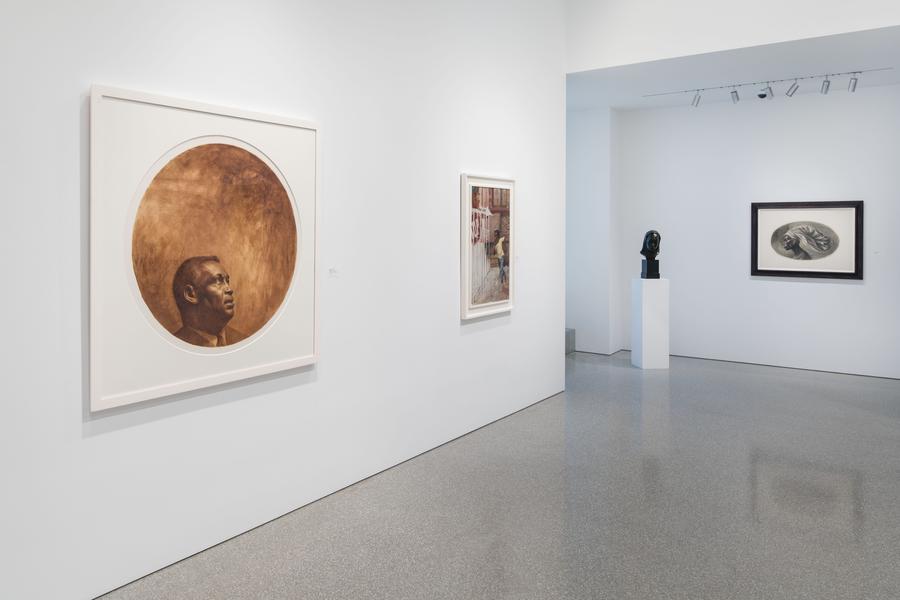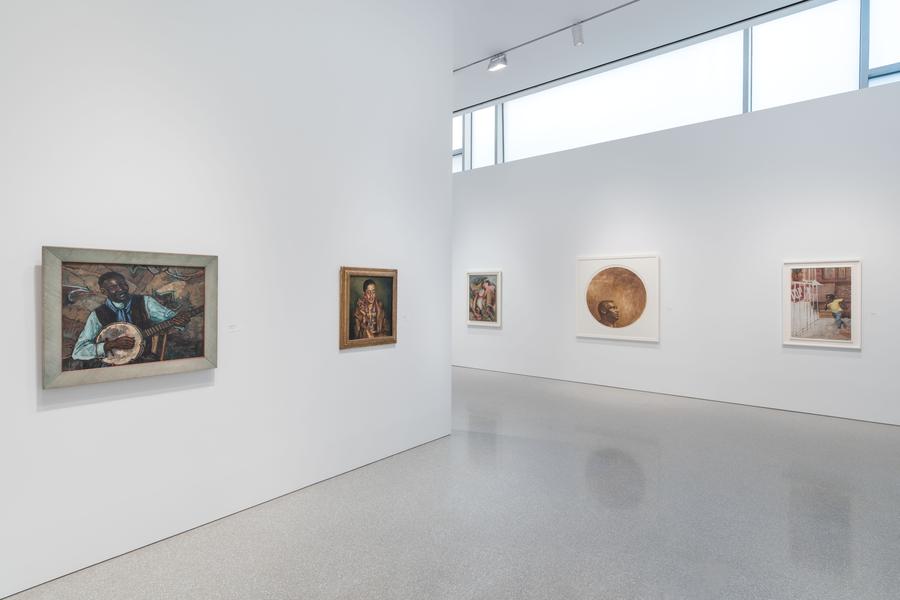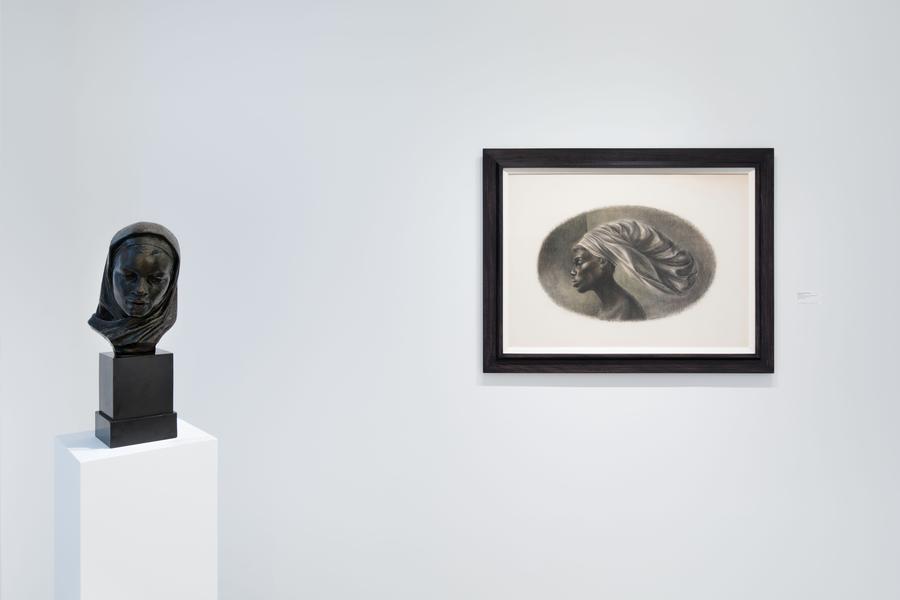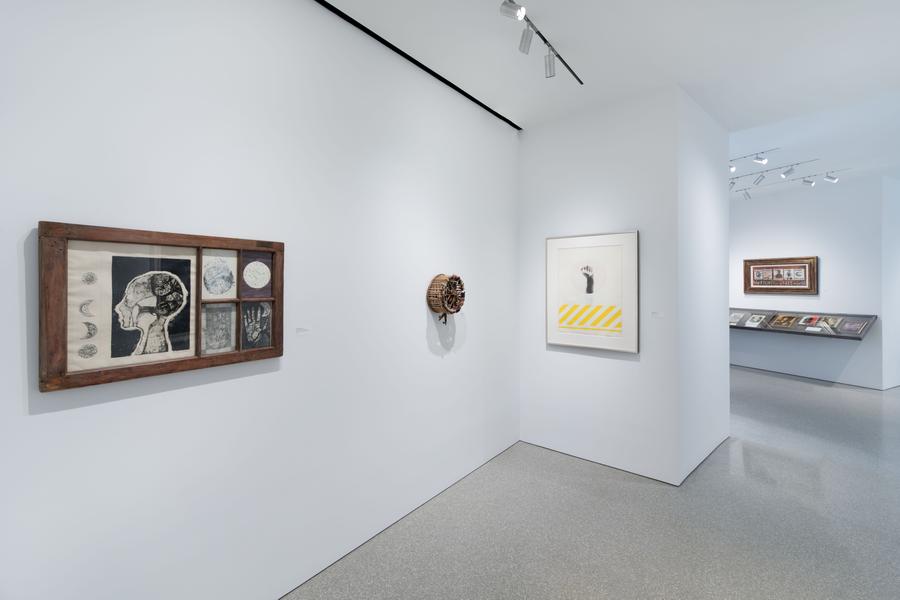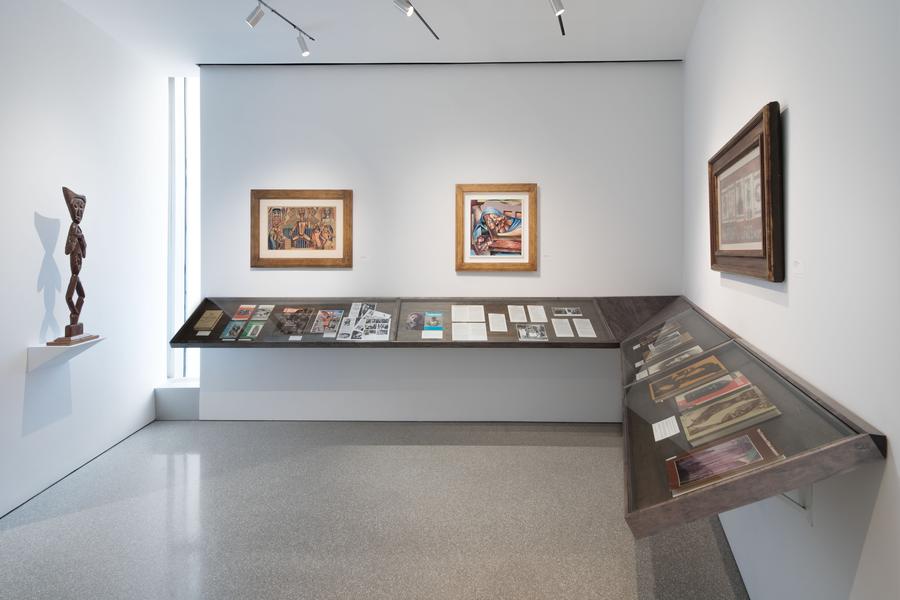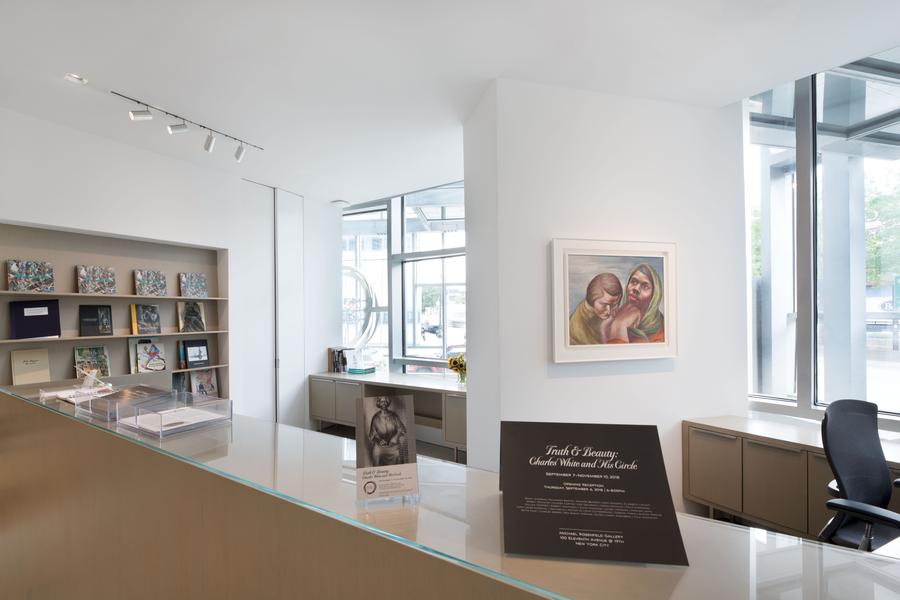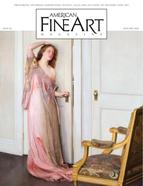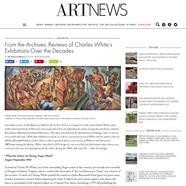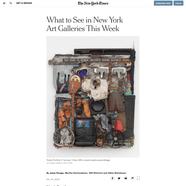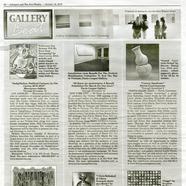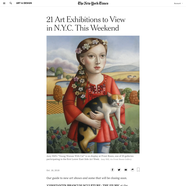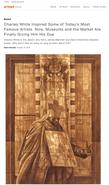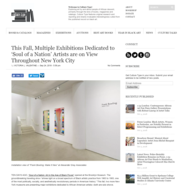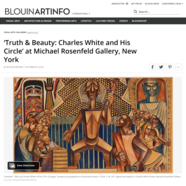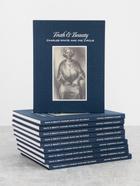“To open man’s eyes to the world, to enable him to see beauty, to better understand reality, and to have a closer affinity with truth... beauty, reality and truth are the philosophical basis for my work.” —Ebony, July 1967
(NEW YORK, September 5, 2018) Michael Rosenfeld Gallery is pleased to present Truth & Beauty: Charles White and His Circle, featuring the work of Charles White (American, 1918–1979) along with a selection of works from his artistic circle of friendships that include John Biggers, Eldzier Cortor, Roy DeCarava, Philip Evergood, Robert Gwathmey, David Hammons, Jacob Lawrence, Norman Lewis, Betye Saar, Ben Shahn, and Hale Woodruff. The exhibition will be on view from Friday, September 7 through Saturday, November 10, 2018 with the opening reception Thursday evening, September 6, 6-8pm. The exhibition includes four early Charles White paintings and thirteen drawings; works range in date from 1935 to 1973, spanning his productive career. Exhibition highlights include a 1973 portrait of Paul Robeson created for the bass baritone and stage/film actor’s 75th birthday event at Carnegie Hall and a 1954 Wolff crayon and charcoal masterpiece titled I Been Rebuked & I Been Scorned named after a well-known and provocative Negro spiritual.
Truth & Beauty: Charles White and Friends reflects on the five decade career of Charles White and traces the trajectory of his most influential relationships forged in and around Chicago, New York and Los Angeles. Mirroring the defining work created during these phases of his life, the friendships that White cultivated in each of these cities is a testament to his lasting significance and legacy as an artist, activist and educator. The exhibition represents the artist’s formative years in Chicago’s South Side, where he attended the School of the Art Institute of Chicago and was deeply involved in organizations like the Art Crafts Guild and The South Side Community Art Center. It also evidences the impact White had on artist communities and institutions in New York, Mexico, and Southern California, including the Art Students League, 306 Studio, the Harlem Artist’s Guild, and the Spiral Group. Other artists featured in the exhibition include Benny Andrews, Richmond Barthé, Romare Bearden, Elizabeth Catlett, Ernest Crichlow, Aaron Douglas, William Gropper, Kerry James Marshall, Archibald J. Motley Jr., John Outterbridge, Gordon Parks, Marion Perkins, Charles Sebree, Raphael Soyer, and Harry Sternberg.
Truth & Beauty: Charles White and His Circle will be accompanied by a fully-illustrated color catalogue and will be on view simultaneously with the New York presentation of Charles White: A Retrospective, the first major museum survey devoted to the artist in over 30 years. A Retrospective will be on view at The Museum of Modern Art, New York City from October 7, 2018 to January 13, 2019 and then will travel to the Los Angeles County Museum of Art (February 16–September 19, 2019). White’s work will also be included in the traveling group exhibition Soul of a Nation: Art in the Age of Black Power, organized by Tate Modern, London, on display at The Brooklyn Museum (September 14, 2018–February 3, 2019). Michael Rosenfeld Gallery is a proud lender to both of these exhibitions.
Charles W. White was born in Chicago, Illinois in 1918. Early childhood experiences at the public library and the Art Institute of Chicago instilled in him a love of art and reading that his mother encouraged. In 1931 while in seventh grade, he was one of 500 Chicago public school students to receive a scholarship from the James Raymond Nelson Fund to attend Saturday art classes at the Art Institute of Chicago; he, along with painter Eldzier Cortor and writer Margaret Burroughs, continued to take classes until his junior year of high school, receiving instruction and attending lectures by artists like Ivan Albright. He participated and exhibited with the Art Crafts Guild; members of the Guild like Charles Sebree, Richard Wright and Gwendolyn Brooks were vital to the Black Chicago Renaissance – a cultural movement that encouraged activism and support for African American art and literature in the 1930s and 1940s. Although White was spared the Jim Crow laws of the south (his mother’s family was from Ridgeland, Mississippi, where he visited twice annually), he grew up in a divided city that exposed him to racism. At age fourteen, White read Alain Locke’s The New Negro, which sparked a sense of pride and a passion for black American history, but caused problems for him at school among teachers who labeled him a troublemaker for questioning their Eurocentric curriculum. After completing high school, White joined the Works Progress Administration (WPA) in 1938, first as an easel painter and then in the mural division. From 1939 to 1940, he worked on Five Great American Negroes, a five-by-twelve-foot canvas depicting Sojourner Truth, Booker T. Washington, Frederick Douglass, Marian Anderson, and George Washington Carver. During these years, he was also commissioned by the Associated Negro Press (ANP) to create The History of the Negro Press for the American Negro Exposition, and three of his artworks were included in the Library of Congress exhibition The Art of the American Negro. While working for the WPA, White met and befriended photographer Gordon Parks, and the two would often walk together through Chicago’s South Side, photographing and sketching the community.
